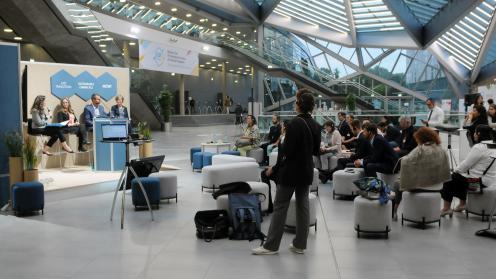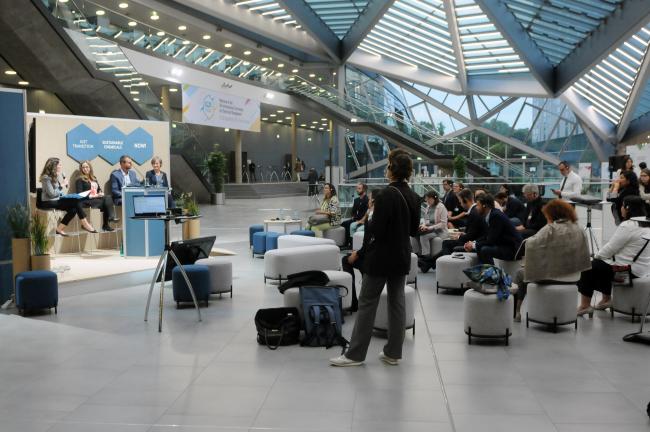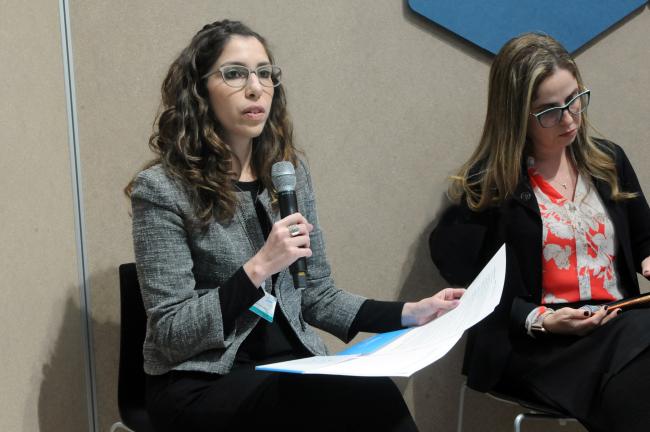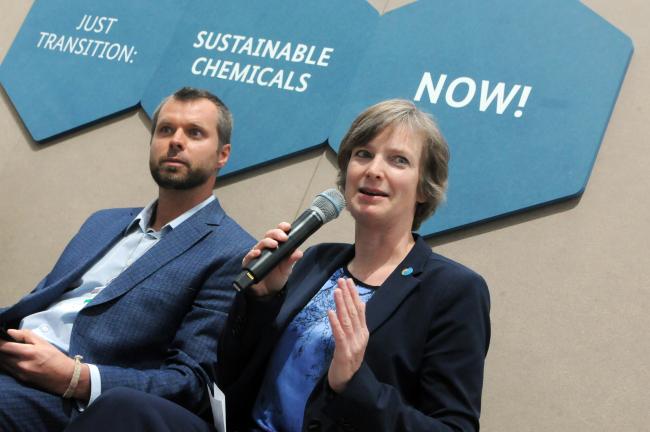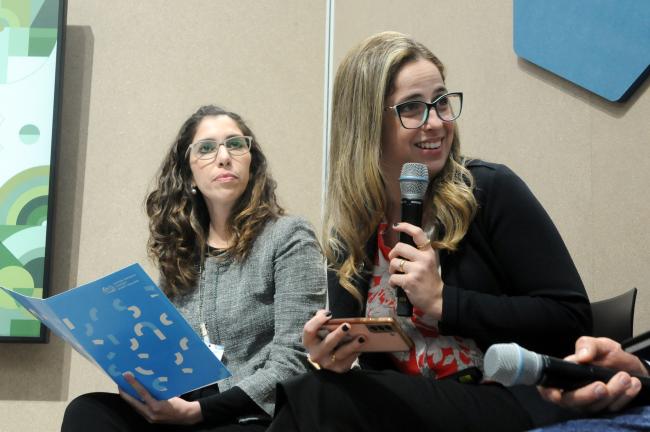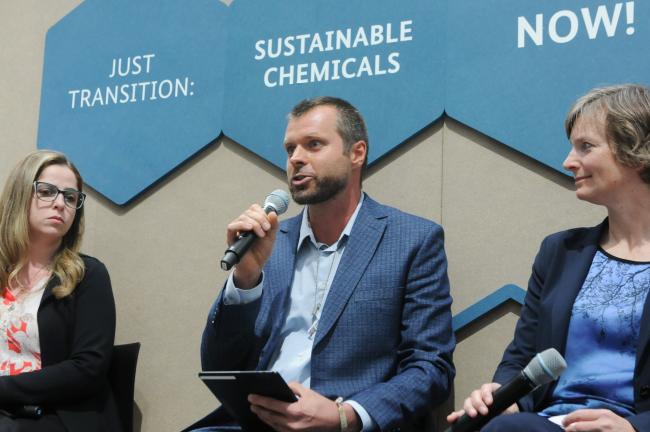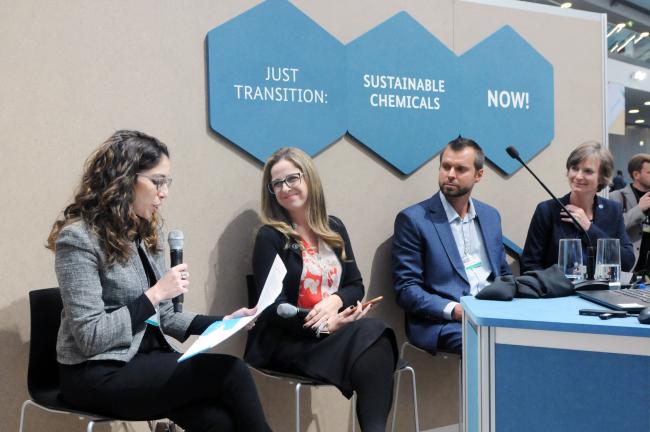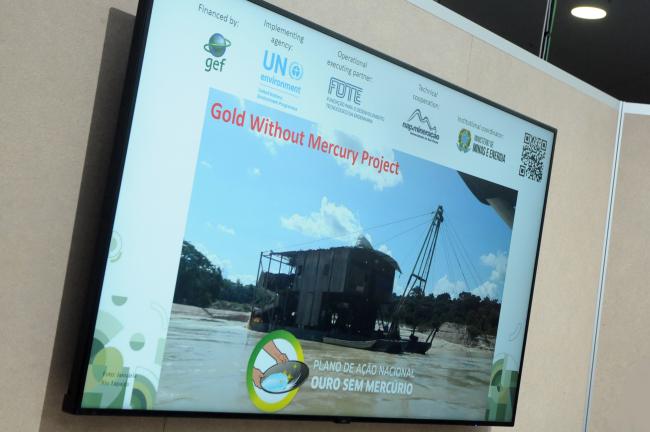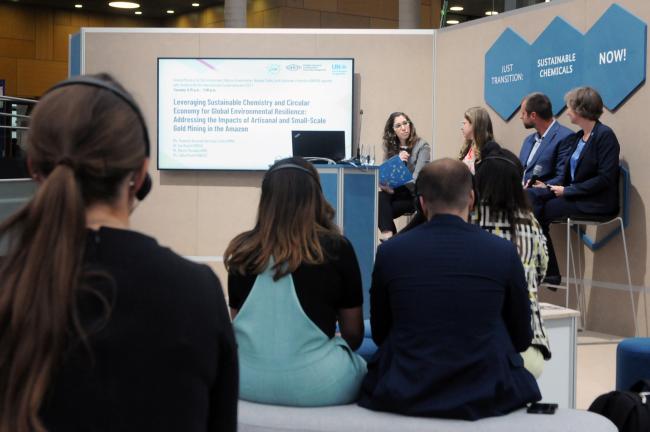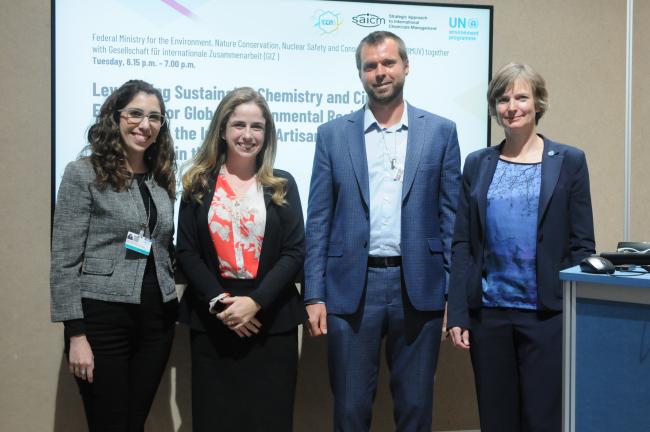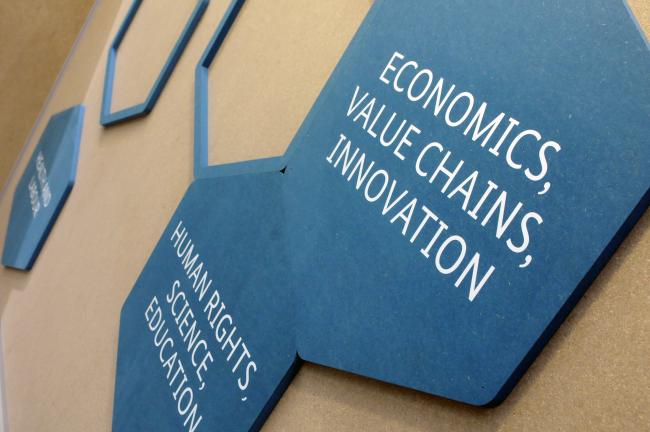About
Panelists shared strategies for tackling the environmental impacts and health risks of using mercury in artisanal and small-scale mining while acknowledging the challenge of supporting the 20 million people worldwide earning a living from ASM.
This event was sponsored by GIZ and hosted by Talita de Mello Pinotti, UN System Staff College. Opening the meeting, Moderator Pinotti noted that the UN Environment Programme (UNEP) has cited small-scale gold mining as the biggest source of mercury in the world, with many effects on health, and said this event would focus on the environmental and social implications of using mercury in ASGM.
On her expectations for the fifth session of the International Conference on Chemicals Management (ICCM5) negotiations and the Bonn High Level Declaration, Eva Dracht, German Federal Ministry for the Environment, Nature Conservation, Nuclear Safety and Consumer Protection (BMUV), Germany, noted that both of these are, of course, much broader than mercury, and aim to improve the situation in all areas of chemicals pollution. She said ICCM5 is expected to establish the structures needed for society to address the overall problem of chemical pollution and related environmental and social problems. She expressed hope for a powerful signal to the world on the difficult issue of jointly managing chemicals safely.
Thaianne Resende Henriques Fábio, Ministry of Environment and Climate Change, Brazil, said an initial assessment of mercury in Brazil is being finalized through a Global Environment Facility (GEF) project as part of Brazil’s strategy for implementing the Minamata Convention. She added that, through the Gold Without Mercury joint initiative of UNEP and the Brazilian Ministry of Mines and Energy, a national action plan to reduce and, if possible, eliminate mercury pollution caused by gold mining is being developed in accordance with Annex C of the Minamata Convention.
She listed challenges, including: Brazil’s huge size; the remoteness and inaccessibility of mines; the social realities of tens of thousands of informal miners with no technical training or mechanisms; and competition with organized crime on finances, drug trafficking, invasion of Indigenous lands, and illegal mines. Finally, she called attention to the 6 September 2023 establishment of CONASQ, the Brazilian National Chemical Safety Commission, a multistakeholder process working on chemical safety.
On how use of the circular economy can enhance national experiences, Marcin Piersiak, Alliance for Responsible Mining (ARM), spoke on his experiences focusing on artisanal and small-scale mining (ASM), noting this field employs 20 million people worldwide and supports their families. He said it is very labor intensive and has very high CO2 emissions per unit of labor, acknowledging that ASM is thus a social and economic issue.
Piersiak cited opportunities for using the circularity principle through: recirculating rather than discharging water; better mine planning; better sources of electricity; rehabilitating degraded land; and using the capital generated from mining to foster alternative livelihoods such as in agriculture. He said eliminating mercury requires planning for the future and investing in something secure. He added that ARM is organizing Brazilian cooperatives, transferring ARM-developed knowledge to help them align with global standards. However, he also noted that gold is too intrinsically valuable for people to stop mining it and instead reuse what is already above ground, and queried whether the elimination of gold mining would even be ethical, given the people that depend on it.
Further points made by the panelists included that:
- gold companies must follow national environmental policy, legislation, and regulations, with sanctions for criminal activities, rather than just voluntary controls;
- consumers must consider the biodiversity and health effects of mercury mining, such as rainforest decimation, and mercury pollution, while still ensuring that people can make a living;
- the use of certified gold, like the EU Regulation on deforestation in supply chains, may be useful but is challenging for local ASGM-active populations, and most gold mining activities are in the informal sector, which would affect the security of investments in certification efforts;
- certification is a carrot but sticks are needed to make certification work, including pressure from government, but ARM’s Fairmined Standard labelling initiative shows it can work;
- addressing mercury is hard, addressing it on Indigenous land is even harder given lack of understanding and trust;
- it is necessary always to integrate the sustainable development component into environmental protection projects to bring benefits to the local communities in improved livelihoods;
- ASM is growing rather than decreasing, so pragmatism is crucial, such as regarding it as an opportunity for gold and other minerals to be converted into local development that is just and inclusive; and
- consumers and people who make production and consumption rules in industrialized countries all have responsibility for the impacts of buying a product and avoiding causing hardship unintentionally.
Organizers: GIZ
Contact: Talita de Mello Pinotti t.demellopinotti@unssc.org
For more information: www.responsiblemines.org/en/
https://www.unep.org/resources/report/brazil-mercury-management-small-scale-gold-mining-designing-strategy-national
All ENB photos are free to use with attribution. For this side event, please use: Photo by IISD/ENB | Diego Noguera.
To receive free coverage of global environmental events delivered to your inbox, subscribe to the ENB Update newsletter.
